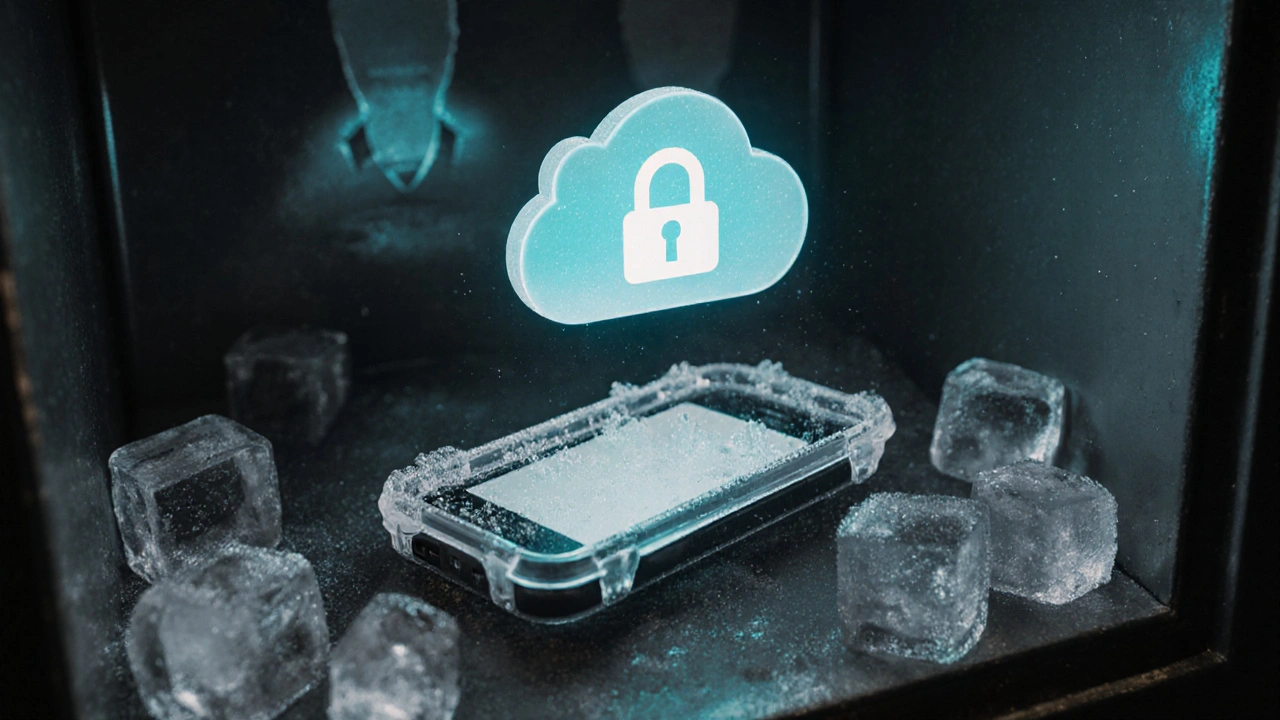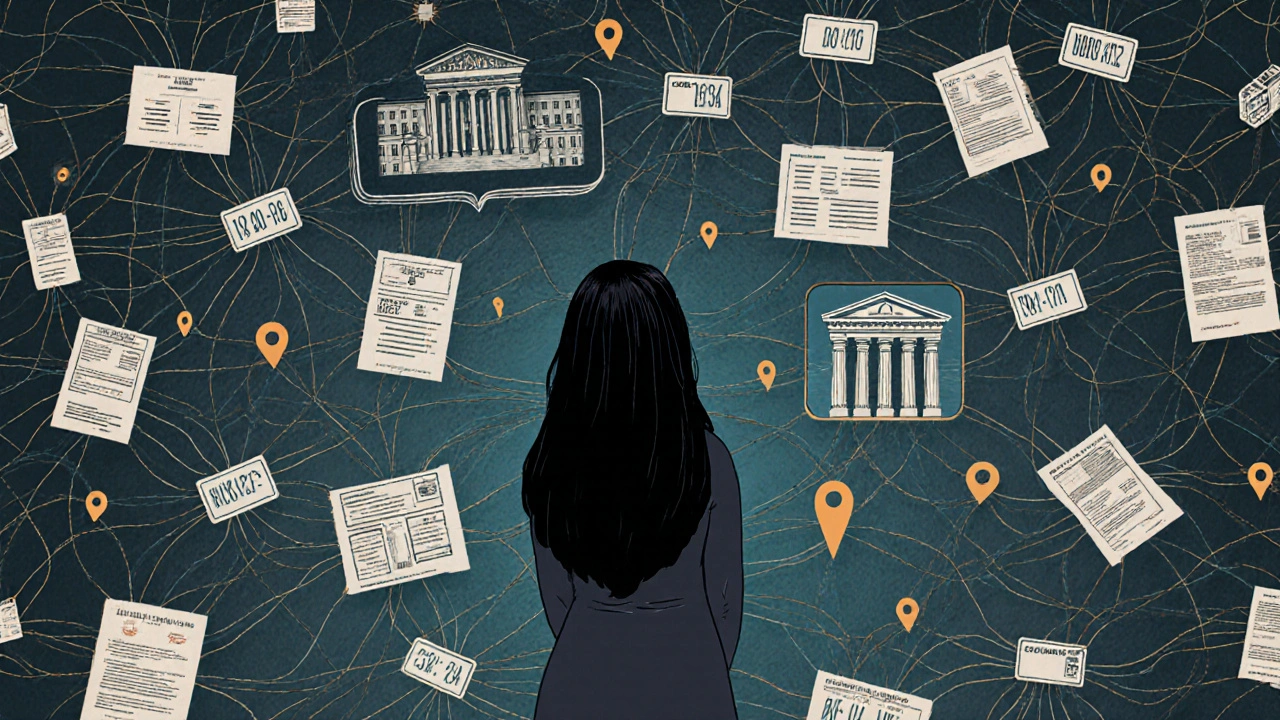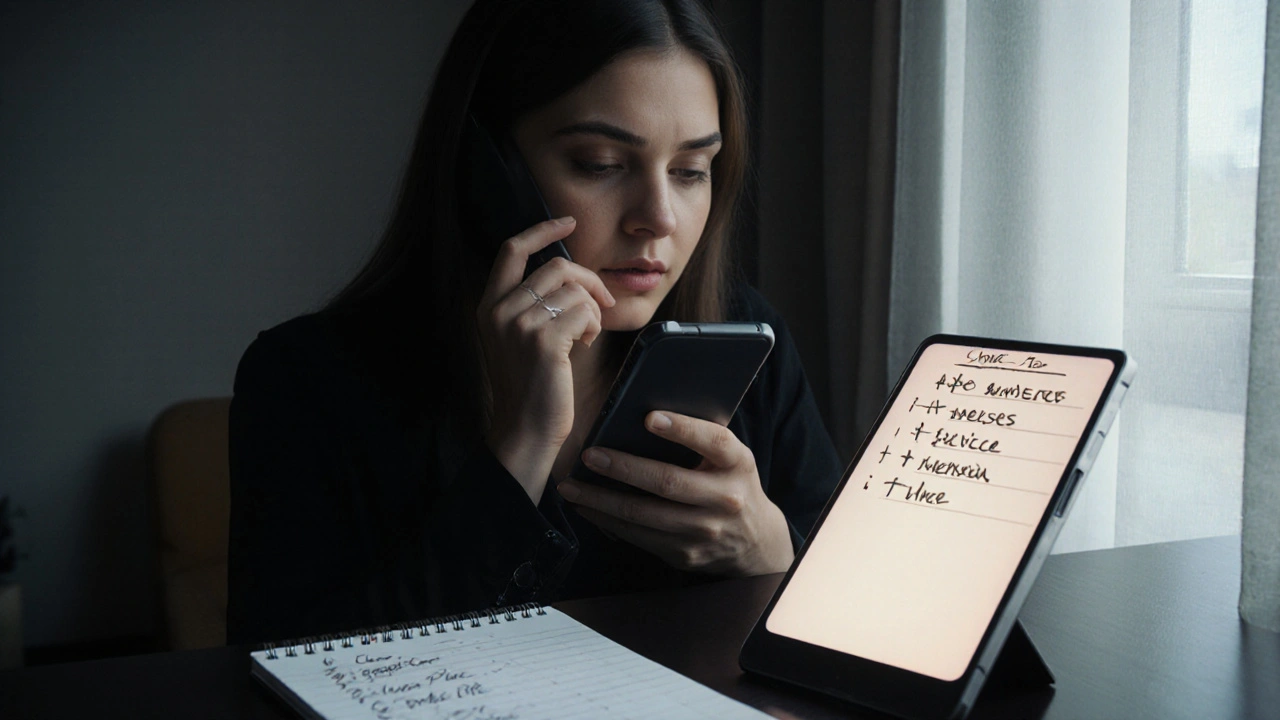When you’re working in sex work, safety isn’t something you hope for-it’s something you build. Every shift, every client, every location carries risk. And when things go wrong, having clear, reliable documentation can mean the difference between being believed and being ignored. This isn’t about paranoia. It’s about power. The power to report, the power to protect, and the power to hold people accountable.
Why Documentation Matters
Most police departments don’t take sex work-related incidents seriously unless there’s hard evidence. A client who threatens you, steals your money, or assaults you might walk away clean if all you have is your word. But if you’ve recorded the time, the license plate, the voice, the exact words he said-you’ve changed the game. Documentation turns a he-said-she-said situation into something investigators can’t ignore.
Real stories back this up. In 2023, a sex worker in Melbourne recorded a client’s threats using her phone’s voice memo app. She saved the file, wrote down his car details, and shared it with her safety network. When he returned two weeks later, she flagged him. Police found his record: three prior complaints, all dismissed for lack of evidence. This time, they acted. He was arrested. That file saved her life.
What to Record
You don’t need a high-tech setup. You need consistency. Here’s what works:
- Client details: Full name if given, alias, phone number, email, Uber/Driver ID, or any identifier they provide.
- Time and location: Exact address, building name, floor, apartment number. Even if you’re meeting in a park, note the nearest cross street and landmark.
- Vehicle info: Make, model, color, license plate. If you’re unsure, take a photo of the car from a safe distance before entering.
- Audio or video: A quick voice memo saying, “Today’s date, time, location, client name or ID, and what’s being agreed upon.” You don’t need to film their face. Just record the conversation.
- Behavior notes: “Asked for unprotected sex,” “Refused to show ID,” “Became aggressive when I asked for condom,” “Threatened to post photos.” Be specific. Vague descriptions won’t help later.
One worker in Sydney uses a simple Google Form on her phone. She fills it out right after each client leaves. It auto-saves to her cloud account. She doesn’t need to remember passwords-just open the link and tap. It takes 90 seconds. That’s her safety net.
How to Store Evidence Securely
Storing evidence is just as important as collecting it. If your phone is seized, hacked, or lost, your records disappear. That’s why redundancy matters.
- Cloud backup: Use encrypted services like ProtonDrive or Tresorit. Avoid Google Drive or iCloud unless you’ve turned on two-factor authentication and encrypted files first.
- Physical backup: Print key entries and store them in a locked box at a trusted friend’s house. Don’t keep them with your gear.
- Third-party sharing: Use apps like SafetyPin or RedLightSafe to send automated check-ins to your safety contacts. If you don’t check in by a set time, they get your last location and recording.
- Hidden folders: On your phone, rename files as “Notes” or “Shopping List.” Use apps like Hide It Pro or Vaulty to lock folders with a fake password.
One worker in Vancouver keeps a burner phone with no SIM card. She only uses it to record incidents. It’s charged, powered on, and stored in a waterproof case inside a friend’s freezer. No one knows it’s there-not even her partner. She calls it her “insurance policy.”

What to Do When Something Happens
Incidents aren’t always violent. Sometimes it’s a client who steals your cash. Sometimes it’s a landlord who threatens to call the cops if you don’t pay extra. Here’s what to do next:
- Stay calm: Panic erases memory. Take three breaths. Write down what happened while it’s fresh.
- Don’t delete anything: Even if you think it’s “not serious,” keep every file. One day, it might connect to another case.
- Reach out to your network: Tell your safety contact. Ask them to help you file a report or contact a legal aid group.
- File a report: If you’re in Australia, call 131 444 (non-emergency police line) and ask for the Sex Worker Outreach Program liaison. In the U.S., contact SWOP (Sex Workers Outreach Project). They know how to handle these cases without outing you.
- Follow up: Get a case number. Save it. Send a copy of your evidence to your advocate. Don’t assume it’s done.
Many workers avoid reporting because they fear arrest, deportation, or stigma. But in places like Perth, Victoria, and New Zealand, decriminalization means police are legally required to treat sex workers as victims-not criminals. Your evidence gives you the leverage to demand that.
Tools That Actually Work
There are apps built by sex workers, for sex workers. Here are the ones trusted in 2025:
- SafetyPin: Free, open-source. Sends location and voice note to contacts on a timer. Works offline.
- RedLightSafe: Allows you to share real-time location with up to five people. One tap sends a distress signal.
- Guardian: Android and iOS. Records audio and video in the background while you browse the web. Doesn’t show icons on your screen.
- SafeRide: For ride-share pickups. Auto-logs driver details and compares them to your client’s info.
These aren’t marketing gimmicks. They’re survival tools. One worker in Adelaide used SafetyPin to alert three contacts when a client locked her in a room. They called police within minutes. She was out in 12 minutes. No one was hurt.

What Not to Do
There are traps. Don’t fall for them:
- Don’t rely on memory: Stress distorts time and details. Write it down-even if you think you’ll remember.
- Don’t wait for “proof”: You don’t need a video of a punch. A voice note saying, “I’m not comfortable with this,” is enough.
- Don’t share evidence publicly: Posting a client’s face or name on social media can get you sued. Use it for legal channels only.
- Don’t trust “safe” platforms: Apps like OnlyFans or OnlyFans alternatives don’t protect you from clients. They’re not law enforcement.
One worker in Brisbane posted a client’s license plate on Reddit. He found her. She moved cities. She still hasn’t recovered financially. Documentation isn’t revenge. It’s defense.
Building a Personal Safety System
Documentation is just one part. The best safety systems combine three things: tech, people, and routine.
- Every morning: Check your backup files. Are they synced? Are your contacts awake and ready?
- Before every meeting: Text your safety contact your location and expected return time. Even if it’s just “7pm, CBD, room 304.”
- After every client: Spend 60 seconds writing down one thing that felt off-even if it didn’t escalate.
- Once a month: Update your evidence folder. Delete old files you no longer need. Keep only what’s relevant.
This isn’t about being paranoid. It’s about being prepared. You don’t need to be a detective. You just need to be consistent.
Final Thought: Your Evidence Is Your Voice
Sex work is still criminalized in most places. That means your voice is often silenced. But when you document, you reclaim it. Every timestamp, every recording, every note is a brick in the wall you’re building-not just for yourself, but for every worker who comes after you.
One day, someone will find your files. Maybe they’re a new worker, scared and alone. Maybe they’re a journalist, a lawyer, or a policymaker. They’ll read what you wrote and realize: this isn’t just about one bad client. It’s about a system that fails too many.
Don’t wait for someone to save you. Save yourself. Record it. Store it. Share it. And when the time comes, make sure they can’t ignore you.
Do I need to record every client?
You don’t have to record every single one-but you should record anyone who makes you feel uneasy, even slightly. Many incidents happen with clients who seemed fine at first. Recording isn’t about suspicion-it’s about pattern recognition. If you notice a trend (same license plate, same language, same demands), that’s when documentation becomes lifesaving.
What if I don’t have a phone or internet?
You can still document. Keep a small notebook in a hidden place. Write down the date, time, location, client alias, and what happened. Use code words if needed (e.g., “Blue Car” for a dangerous client). Ask a trusted friend to hold onto it. Even handwritten notes have been used in court cases when digital records were lost.
Can I use this evidence in court?
Yes-if it’s collected properly. Audio recordings are admissible in Australia if at least one party (you) consented to the recording. Video is stronger if it shows context, like location or behavior. Written logs with timestamps and details help corroborate. Legal aid groups like SWOP or the Scarlet Alliance can help you prepare your evidence for court without exposing your identity.
Will reporting get me arrested?
In Australia, sex work is decriminalized in Victoria, NSW, and the ACT. In other states, you’re not arrested for reporting a crime-you’re protected as a victim. Police are trained to separate criminal acts (assault, theft) from the act of selling sex. Your evidence helps them focus on the real offender, not you.
How do I know if my phone is being tracked?
If you suspect surveillance, stop using your main phone for documentation. Use a cheap, secondhand phone with no SIM card. Turn off location services and Bluetooth. Don’t log into personal accounts. Store recordings on encrypted cloud services, not local storage. If you’re worried, contact a sex worker advocacy group-they can help you get a secure device.
